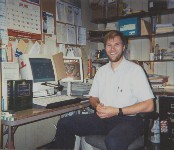Page added on April 24, 2010
Khalid Al-Falih, President and CEO, Saudi Aramco
video from Daniel Yergin and CERA
The Opening Keynote address at CERAWeek 2010 was given by Khalid Al-Falih, President and Chief Executive Officer of Saudi Aramco, who was welcomed to the conference by IHS CERA Chairman Daniel Yergin. Mr. Al-Falih described the challenges facing the world’s energy industries in the context of three imperatives, which he named “The Triple-A Triangle,” namely
- adequacy of energy supplies for a growing world population and world economy
- affordability of the energy required for economic prosperity
- acceptability of energy production in terms of environmental sustainability
With respect to the latter imperative, he remarked that “Stewardship is a moral duty for energy providers … but it is also good business.”
Mr. Al-Falih noted that the transformation to alternative (nonfossil) forms of energy will not be instantaneous. The growth, development, and cost of new energy technologies remain an open question. He worries that with all the emphasis on clean energy investment, a “green bubble” could be developing (analogous to the “dot-com bubble” of the 1990s, or the housing bubble of recent years) that might someday burst, with disastrous consequences. Despite this concern, he noted that Saudi Arabia is investing heavily in its “other energy resource–the sun,” although the economics of solar energy are still a challenge.
Oil continues to underpin the modern economy, and underground resources of oil are plentiful, Mr. Al-Falih said. There is a danger, however, that the industry isn’t making the necessary investments to prevent supply bottlenecks in future years. Fossil fuels will still satisfy 80 percent of global energy 20 years from now, and even though the percentage share of fossil fuels in the overall energy mix may decline, the absolute level of fossil fuel consumption will continue to grow as a result of population growth and rising living standards.
Mr. Al-Falih made the analogy that the world’s energy should be managed in the same way that nutritionists recommend that human energy be managed–with a balanced diet, drawing on a complete range of energy sources. In this regard he recommends a “progressive and pragmatic attitude toward energy issues,” recognizing the hurdles to alternative energy development; wise and timely investments in both traditional and alternative energy sources, avoiding excessive taxation and cross-subsidies; and addressing environmental issues, making oil “cleaner and greener.”
With respect to Saudi Aramco’s corporate goals, he discussed providing a reliable supply of energy to global markets, environmental stewardship, investments in both the upstream and downstream at home and abroad, and substantial investments also to develop human capital. Saudi Aramco now has a productive capacity of 12 million barrels per day, with a target of maintaining 1.5 million barrels per day of spare capacity. The company is investing in natural gas resources in the northern part of the kingdom, with a goal of supplying more domestic energy needs from natural gas, which would free up more oil for export. Domestic oil demand has been growing by 5 to 7 percent per year in recent years. The country would like to cut that growth in half by greater energy efficiency and by substituting natural gas for oil.


Leave a Reply